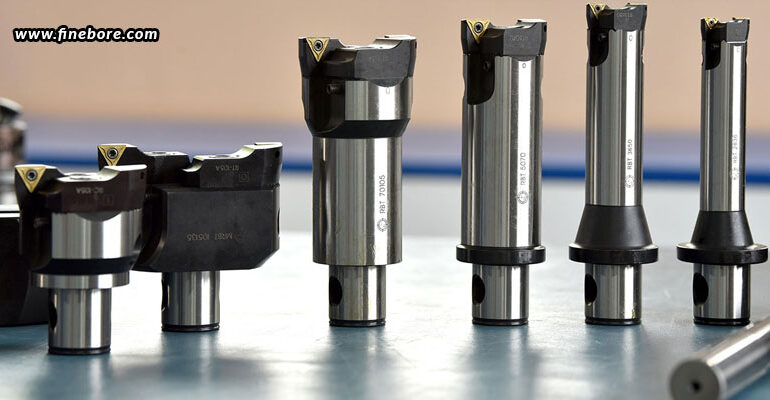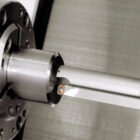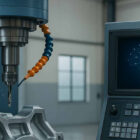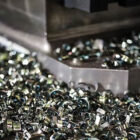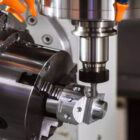Precision boring tools are indispensable parts of industries where accuracy is paramount. However, the decision about the tools to be selected is significantly impacted by the material choice, which also affects machining quality and efficiency. Let’s examine in the blog below how different materials affect tool selection, highlighting important factors for the best possible machining results. Every material presents distinct requirements and challenges, thus choosing precision boring tools with care is essential. Selecting the appropriate precision boring tools is crucial to attaining desired outcomes, regardless of the material being worked on. But, it is the understanding of the properties of every material, and having the knowledge to combine them with suitable tooling solutions that helps manufacturers improve the effectiveness and calibre of their machining operations.
Tooling requirements for different materials
The characteristics of the materials being machined must be understood before getting too far into the specifications for the tools required. Different properties of each material, such as hardness, toughness, heat conductivity, and abrasiveness, affect machining procedures. For instance, aluminium is softer and more ductile than steel, which is renowned for its hardness and machinability. Conversely, titanium is infamous for having a high strength-to-weight ratio and a propensity for hardening during the machining process. On the other hand, composites are strong and lightweight, but they may be difficult to work with because of their abrasive character and tendency to delaminate.
Steel
Steel is a common material in the automotive, aerospace, and machinery industries. To attain accurate tolerances, precision boring tools must be able to bear significant cutting pressures while maintaining sharp cutting edges. When cutting steel, carbide inserts, which are known for their extreme hardness and durability, are the recommended option. Furthermore, when used for steel applications, coatings like TiN, TiCN, or TiAlN can further improve the lifespan and performance of precision boring tools. Additionally, efficient coolant supply systems are essential for steel machining operations as they lubricate the cutting zone and dissipate heat, which lowers tool wear and prevents workpiece deformation. In conclusion, selecting the proper precision boring tools and having effective cooling systems in place are critical to getting the best results and preserving the integrity of machined steel components across various industries.
Aluminium
Aluminium is widely used in the automotive, aerospace, and electronics industries, being highly valued for its lightweight, ductile character, and remarkable thermal conductivity. To prevent chip recutting and tool obstructions, precision boring tools designed for aluminium prioritize rapid material removal and effective chip evacuation. For aluminium machining tasks, high-speed steel (HSS) or carbide tools are preferred, as these tools are designed with optimized geometries like high helix angles and polished flutes. Additionally, aluminium benefits from dry machining or limited coolant application, which avoids possible problems like rust and discoloration brought on by coolant usage. Manufacturers are able to retain the integrity of machined aluminium components in a variety of industrial applications while increasing productivity by utilizing machining procedures and precision boring tools that are adeptly designed for aluminium’s unique characteristics.
Titanium
Titanium alloys are widely used in the aerospace, medical, and marine industries, and are highly valued for their exceptional strength-to-weight ratio and resistance to corrosion. Contemporary tools that can withstand high temperatures and stresses while maintaining dimensional accuracy are necessary for the machining of titanium. This makes solid carbide or indexable carbide inserts with certain geometries like positive rake angles and sharp cutting edges the norm. It is crucial to guarantee effective chip evacuation and heat dissipation in order to avoid damaging the tool or the workpiece. This is where high-pressure coolant systems and air/oil mist lubrication come in very handy, improving machining efficiency and extending tool life. Manufacturers may obtain superior machining results and preserve the integrity of titanium components across a variety of applications by utilizing strong cutting tools and putting proper cooling and lubrication systems into place.
Composites
Because of their uneven composition and propensity for abrasion, composites provide unique machining difficulties. The reduction of delamination, fibre pullout, and tool wear is given priority in precision boring tools designed for composites. In composite machining, diamond-coated or polycrystalline diamond tools excel due to their remarkable resistance to abrasion. Furthermore, careful feed optimization and toolpath planning are essential for minimizing cutting forces and preventing workpiece deformation. Through the utilization of specialized tools and smart machining procedures, manufacturers can proficiently negotiate the intricacies of composite machining, guaranteeing exceptional results and extended tool longevity.
To conclude, selecting the right precision boring tools is essential to successful machining, no matter what the industry. Moreover, the tooling solutions must be tailored to the qualities of the material for the best outcomes. Understanding the precise tooling requirements for a certain material ensures surface finish, precision, and efficiency. Manufacturers may improve their machining procedures to satisfy contemporary production needs by following the aforementioned recommendations. One such manufacturer is FineTech Toolings, which provides custom solutions that are suited to each customer’s demands, thanks to their knowledge and dedication to quality, which ensures top-notch performance, reliability, and productivity, making them the go-to partner for precision boring tools in Bangalore.

